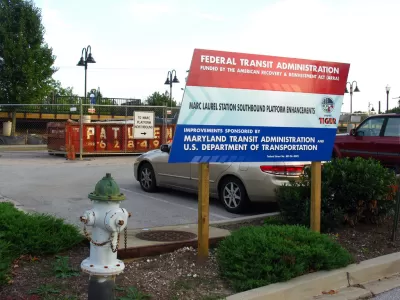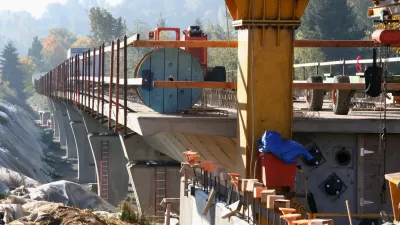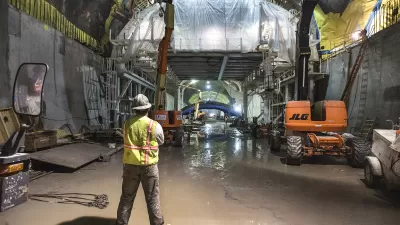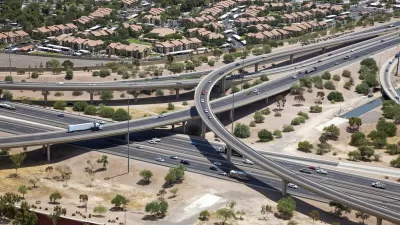The USDOT secretary is making big promises, but an entrenched system makes it difficult to implement long-lasting, systemic change.

Writing in Governing, Jake Blumgart assesses the potential for significant change in the U.S. Department of Transportation as newly appointed secretary Pete Buttigieg champions more diverse modes. "Many of the seemingly groundbreaking gestures the former Democratic presidential aspirant is making, like riding his bike to cabinet meetings or denouncing the racist history of highway policy, have precedent during Barack Obama’s presidency." The department, writes Blumgart, has historically done "little more than overseeing the distribution of funds based on strict formulas that allocate resources to the states." Much of its funding is spent on roadways, and "[m]ost of its tens of thousands of workers are air traffic controllers."
The problem with Democratic administrations, says Beth Osborne, director of Transportation for America, is that "[t]hey have so much confidence that they seem to not feel the need to make actual structural change that will survive them." Former Transportation Secretary Ray LaHood, who served under President Obama, began shifting department policy by prioritizing transit and bike and pedestrian projects through the TIGER (Transportation Investment Generating Economic Recovery) program, but "during Donald Trump’s administration all such spending was eliminated from TIGER’s books." Proposals to implement a Vehicle Miles Traveled (VMT) tax by LaHood and Buttigieg have been rejected by their respective administrations.
President Biden's infrastructure plan, with its "massive allocations for intercity passenger rail, mass transit, and motor vehicle safety," could be "the most dramatic change to federal transportation policy since the 1950s," but supporters worry that the Democrats' tight majority in Congress and the Senate's affinity for compromise could lead to a "dramatically downsized bill."
FULL STORY: Can Pete Buttigieg Really Change Transportation Policy?

Alabama: Trump Terminates Settlements for Black Communities Harmed By Raw Sewage
Trump deemed the landmark civil rights agreement “illegal DEI and environmental justice policy.”

Study: Maui’s Plan to Convert Vacation Rentals to Long-Term Housing Could Cause Nearly $1 Billion Economic Loss
The plan would reduce visitor accommodation by 25% resulting in 1,900 jobs lost.

Planetizen Federal Action Tracker
A weekly monitor of how Trump’s orders and actions are impacting planners and planning in America.

DC Extends Application Window for Outdoor Dining Permits
District restaurants will have until the end of November to apply, but businesses with permits in rush hour parking lanes must end operations on July 31.

Wind Energy on the Rise Despite Federal Policy Reversal
The Trump administration is revoking federal support for renewable energy, but demand for new projects continues unabated.

Passengers Flock to Caltrain After Electrification
The new electric trains are running faster and more reliably, leading to strong ridership growth on the Bay Area rail system.
Urban Design for Planners 1: Software Tools
This six-course series explores essential urban design concepts using open source software and equips planners with the tools they need to participate fully in the urban design process.
Planning for Universal Design
Learn the tools for implementing Universal Design in planning regulations.
Caltrans
Smith Gee Studio
Institute for Housing and Urban Development Studies (IHS)
City of Grandview
Harvard GSD Executive Education
Toledo-Lucas County Plan Commissions
Salt Lake City
NYU Wagner Graduate School of Public Service





























